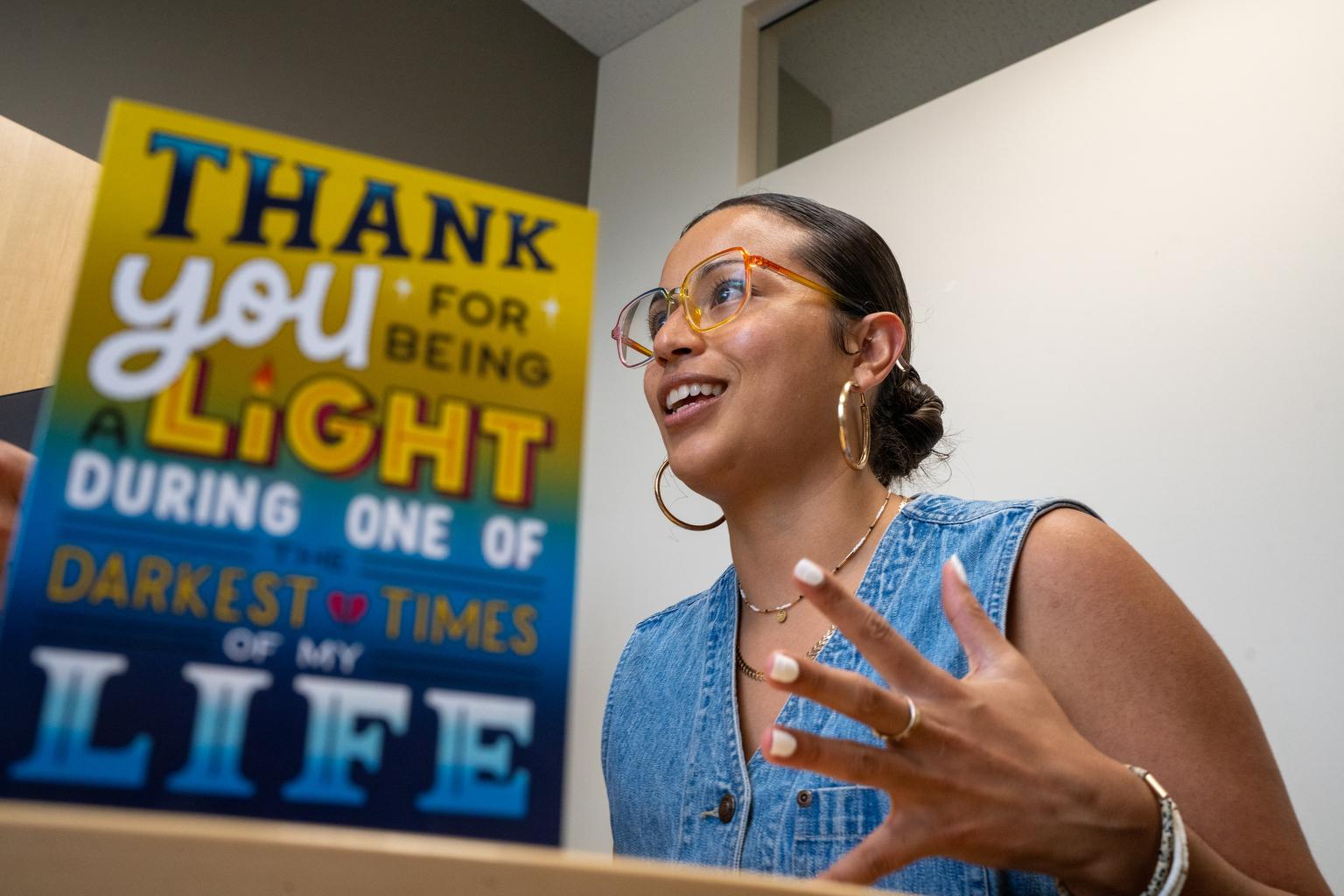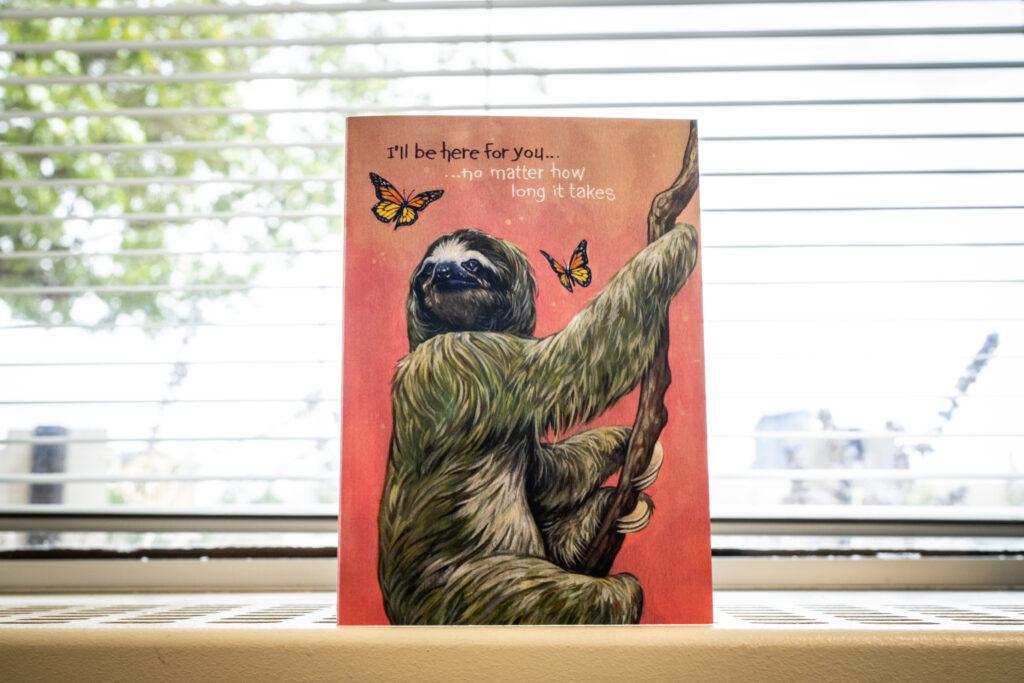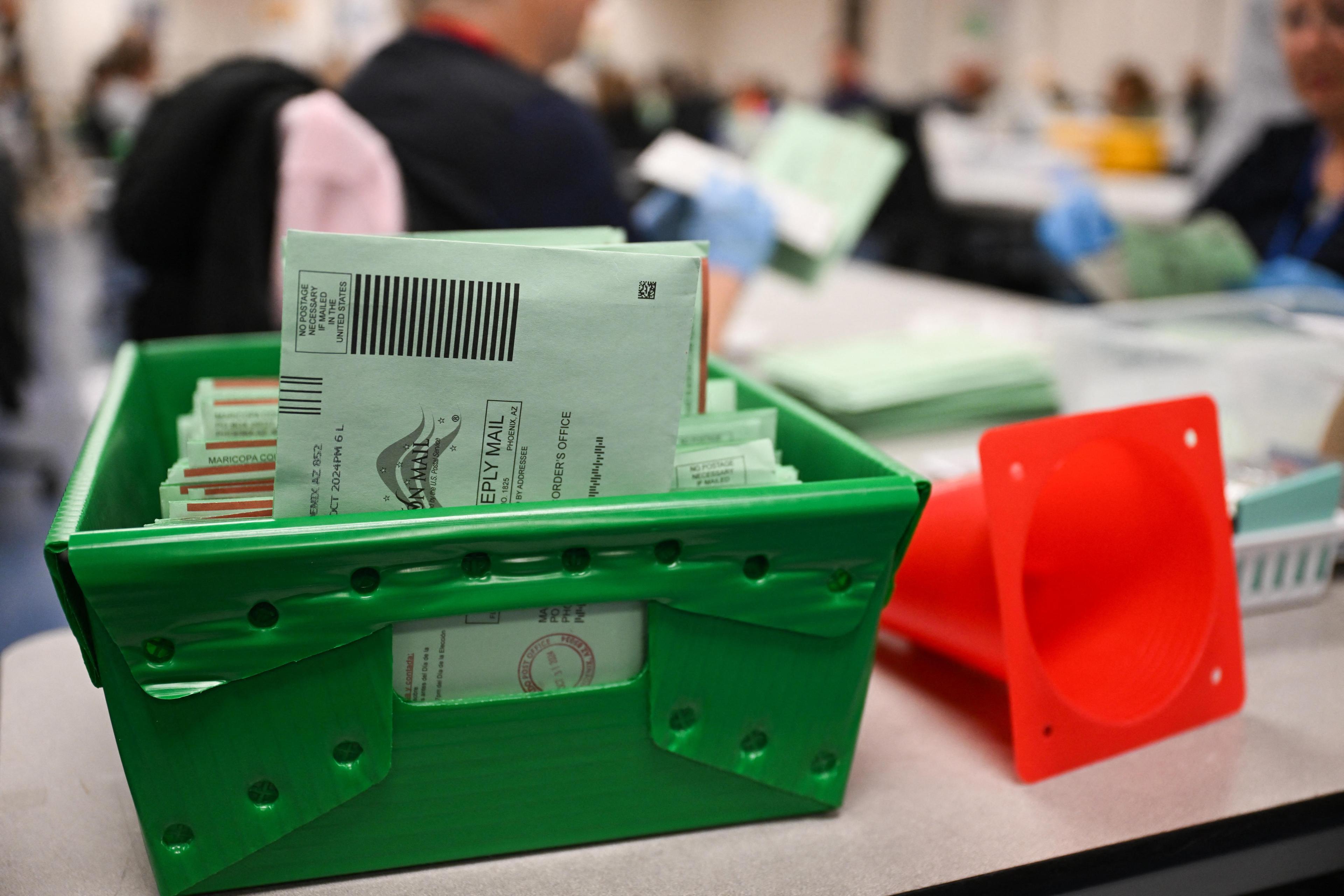
More than 70 types of greeting cards made by dozens of artists are available to give – for free – to people in recovery or supporting someone in recovery. It’s part of an initiative from the Colorado Behavioral Health Administration, which is celebrating mental health and substance abuse recovery.
The Recovery Cards Project, born out of the state’s “Lift the Label” program, shares thoughtful messages for people in recovery — as well as supporters and caregivers of people in recovery.
In honor of Recovery Month this September, the Recovery Cards Project is releasing new cards to add to its collection. These cards are free and can be sent to any address in Colorado. Digital downloads are also available to share worldwide.
“Greeting cards are a time-tested, thoughtful gesture for letting someone in your life know that you're thinking about them during either a special time or maybe a really challenging time,” said Stefany Busch, media manager for the Behavioral Health Administration. “This project was created to fill the gaps [in the greeting card industry] and offer free greeting cards to celebrate recovery and the efforts of those who are working to achieve it.”
The collection includes 72 cards designed by 30 different artists, with options in English and Spanish. Almost all of the artists are Coloradans in recovery or Coloradans with connections to recovery.
CPR spoke with two artists who have new cards dropping for Recovery Month on Sept. 1. Here’s what they had to say about art, recovery and the meaning behind their designs.
Victoria Maldonado
“Mental health and mental illness recovery is something that is incredibly important to me,” Maldonado said. She has been in and out of different treatment facilities for the past 16 years and attributes much of her struggle to racial and ethnic inequity and generational trauma that has shaped her family’s history for generations.
When she was 19, she was admitted into a three-month residential treatment facility for mood disorders. At that point, she decided to “overcome the struggles that I was having so that I could have healthy and safe relationships. Because for me, if I wasn't able to love and feel love, then what's the point?”
Since then, it's been her mission to help people understand her and understand their own loved ones who are in recovery.
When Maldonado started on her latest card design, she said “I sat down at my desk and I made a list of things that I wish I could say to people who have helped me throughout my journey.”
As she brainstormed she remembered something a loved one said to her in one of her darkest moments. “Sometimes we need to borrow how other people see us,” Maldonado recalled, “Because the way that we're seeing ourselves isn't accurate to our true potential and our true light.”
That’s when she knew what the card should say. “Thank you for being a light during one of the darkest times of my life.”
Maldonado said, “I firmly believe if people don't have community and quality support and safe relationships, that it makes recovery really difficult. Personal opinion — it makes it impossible. We need each other.”
When asked what she would say to someone who is suffering, but has not yet taken steps to get help, Maldonado said, “You are worth it. Whatever you're dreaming of, whatever it is that you want to be, whatever kind of relationships you want to have, whatever you have to go through to get there, despite how other people have made you feel about who you are and what you are, it's not true. You are worth it. You are worth the struggles, you're worth the pain, you're worth how hard it might be for other people to understand you. You're worth all of the needs it’s going to take to get there. You're not a burden.”
David Swartz
“I found alcohol and drugs a solution to whatever I was going through in life,” Swartz said. “So if I was anxious or afraid or I didn't want to deal with something, I would just drink my way through it. And that's how I met life.”
He said it got him through years of difficult situations in early adolescence, but over time, that changed. “I built a tolerance. I started having consequences of my drinking,” he said. “Then I was kind of left without a solution to life, which is a very painful place to be.”
But even before he sought help, he was helping himself through art.
“I've been doing art my entire life — and it's probably what kept me alive during the darkest moments of the addiction,” he said. So when he started recovery, he used art as a coping skill to carry him through.
“I still had that one thing that was like, ‘Oh, this is also a solution to life,’” he explained.
When he started working on his design for the Recovery Cards Project, he said he brainstormed kind sentiments that would have, or did, provide him comfort and motivation during early sobriety.


“I started with that and the imagery kind of fell from the message,” he explained. “I just played around with different images and what made sense was a sloth because they're super cute and bring a lot of happiness to people.”
Swartz said he wanted to highlight the idea of allowing someone in early recovery to take their time with their sobriety. For him, that was a big, initial hurdle.
“It gave me a lot of fear and hesitation to be like, ‘I'm going to commit to going to rehab for 30 days and pausing my life.’ And I felt really guilty about that and taking a break for my job and stuff. So I think it's really important to encourage people to take the time they need.”
How to send a card for recovery month — or any other time of year
View all of the cards here. If you find one you’d like to send to someone in recovery, or someone who has supported you through recovery, add it to your cart. You can request up to 10 cards in an order. Then, have the cards shipped so you can share the love.
If you live outside Colorado, the Recovery Cards Project won’t ship to you, but you can download any of the designs for free.
Lift the Label is also hosting a Rally for Recovery at Union Station on Sept. 21 from noon to 3 p.m. The rally will include a walk, community resources, free food and — of course — community.
If you need help, dial 988 to reach the Suicide and Crisis Lifeline. You can also reach the Colorado Crisis Services hotline at 1-844-493-8255 or text “TALK” to 38255 to speak with a trained counselor or professional. Counselors are also available at walk-in locations or online to chat.



